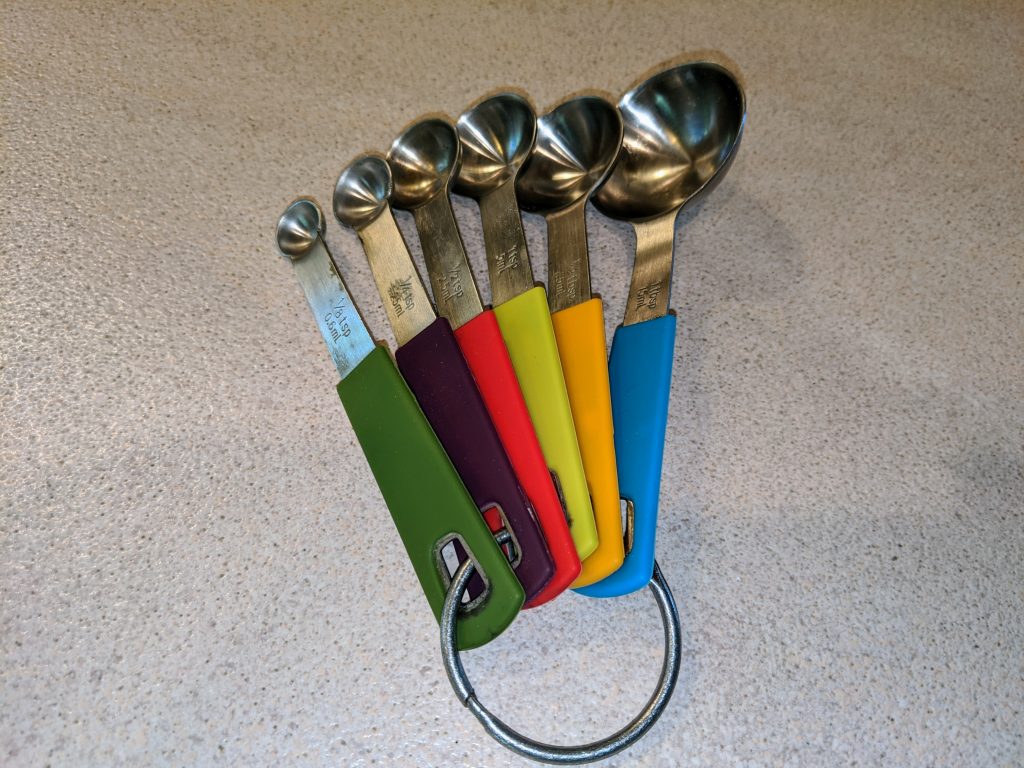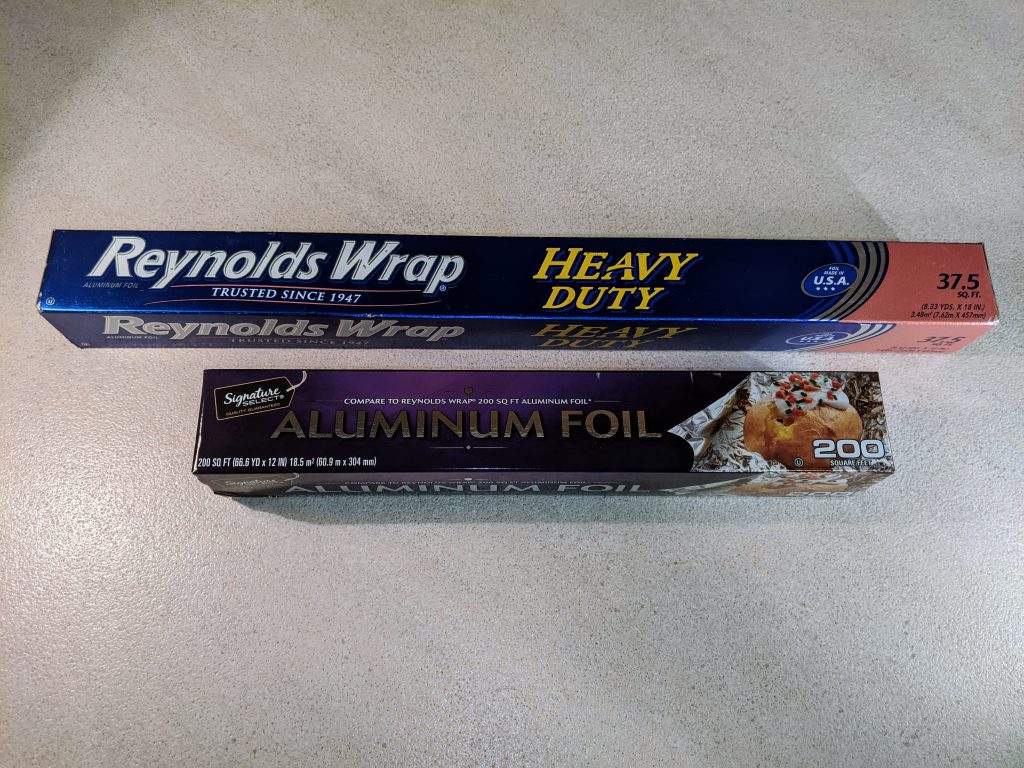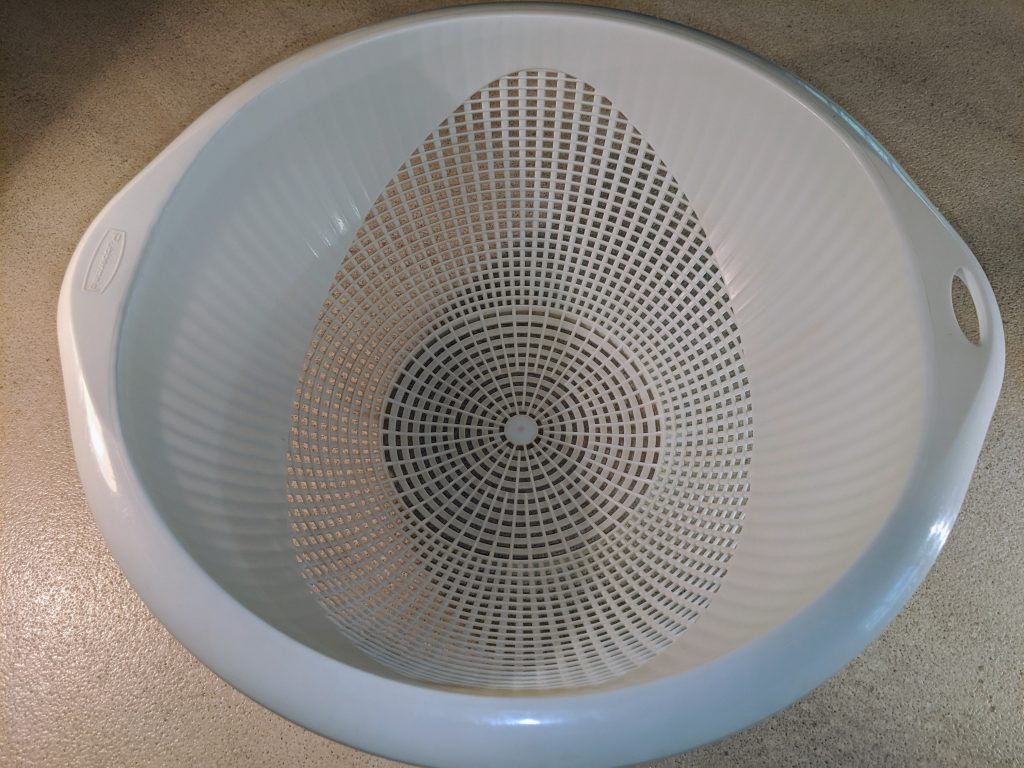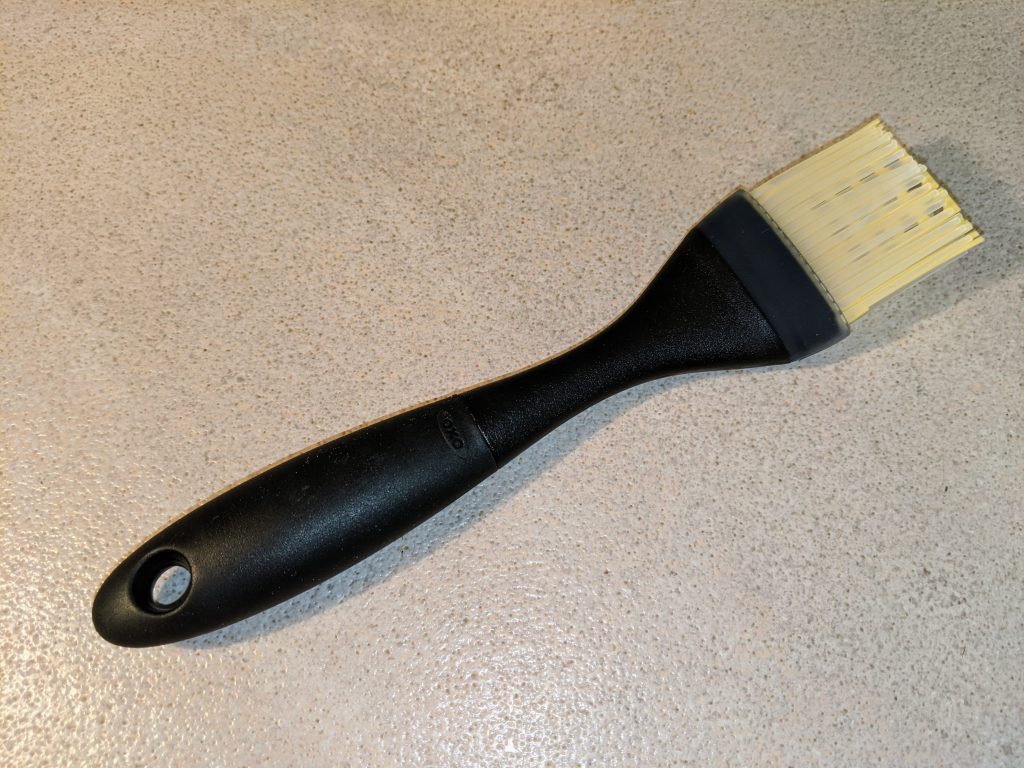This is all the equipment we used in our kitchen to make the pie, even the incidental stuff. Our kitchen equipment is bought on a limited budget and has to fit limited space. Let us know if we can help you equip your kitchen!
All our equipment photos link to Amazon so you can buy the same thing or something similar, but they’re just suggestions.
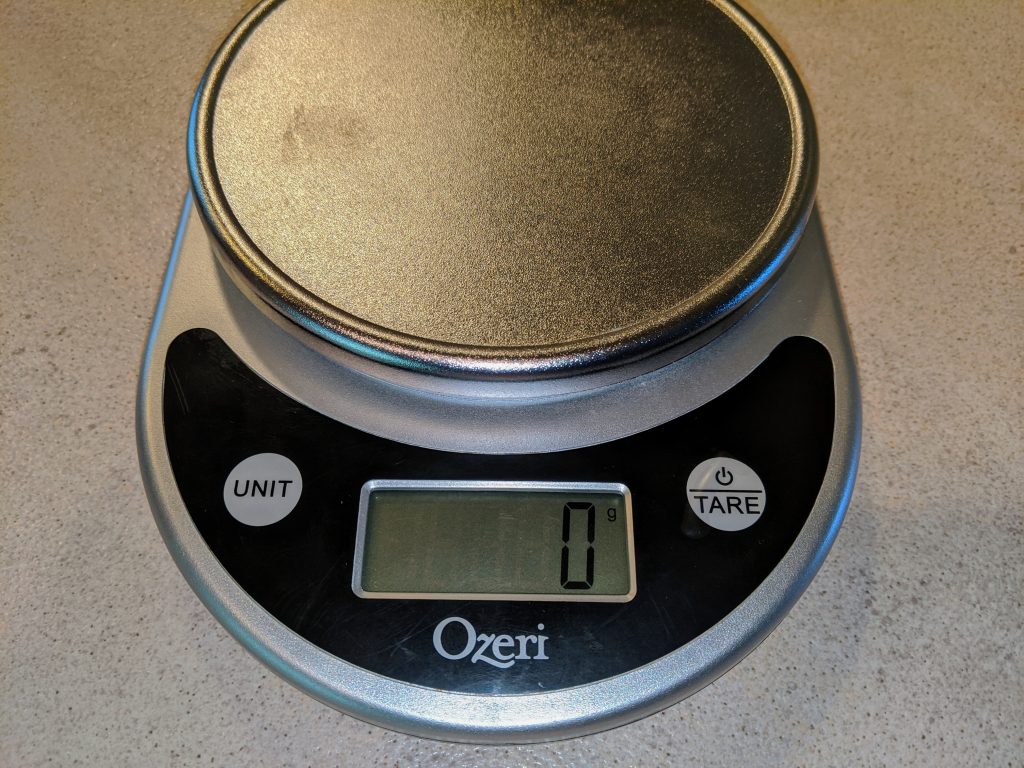
We recommend weighing the flour for the pie crust because the ratio to fat is important for the texture.
You can get away without a scale if you don’t have one. Measure your flour with cups, preferably by the spoon-and-level method.
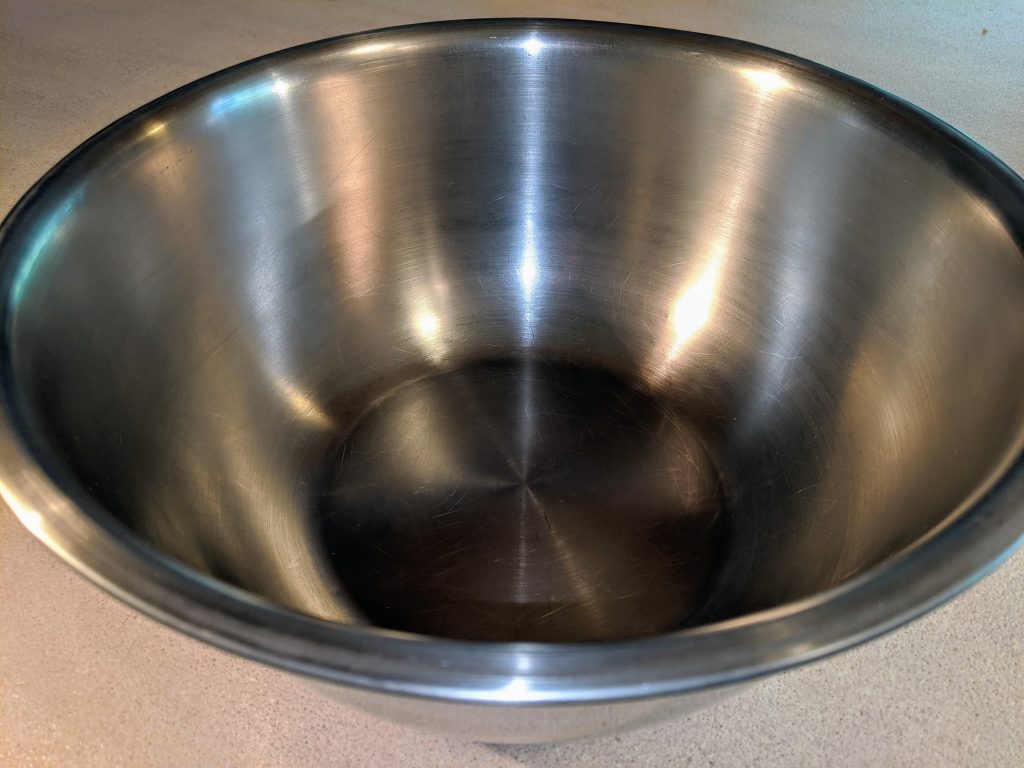
We have nice Pyrex glass mixing bowls, but for many projects, we prefer this versatile knockaround stainless steel bowl.
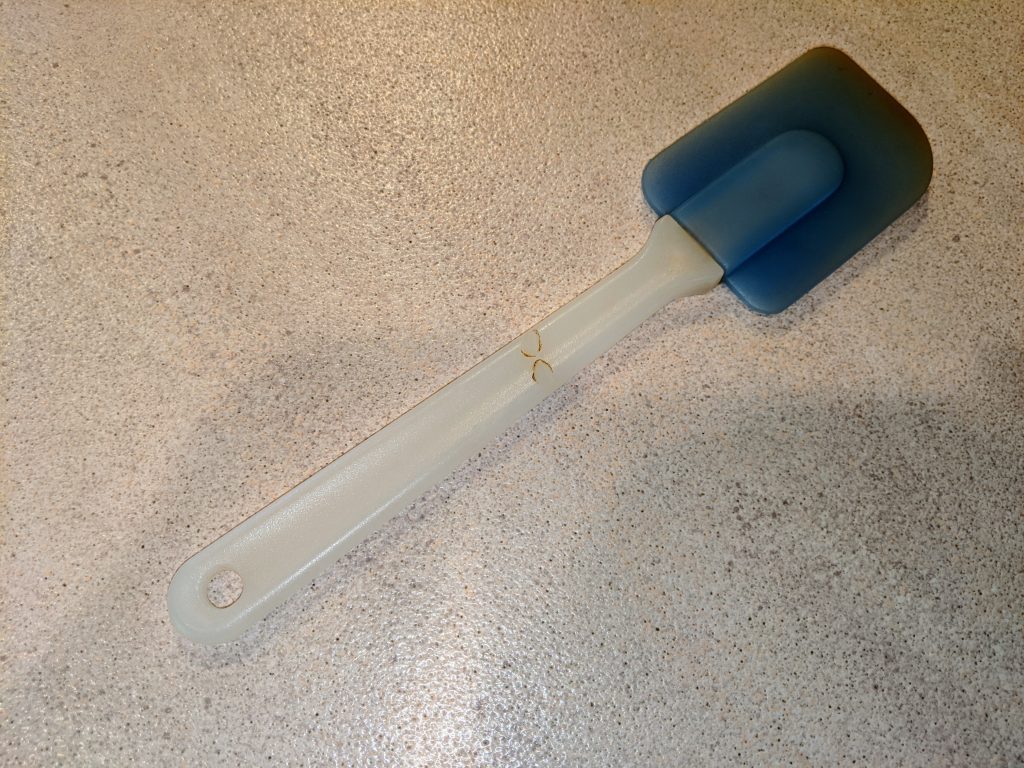
A necessary kitchen tool for cooking or baking. You should probably buy a set of these so you can have several projects going at once.
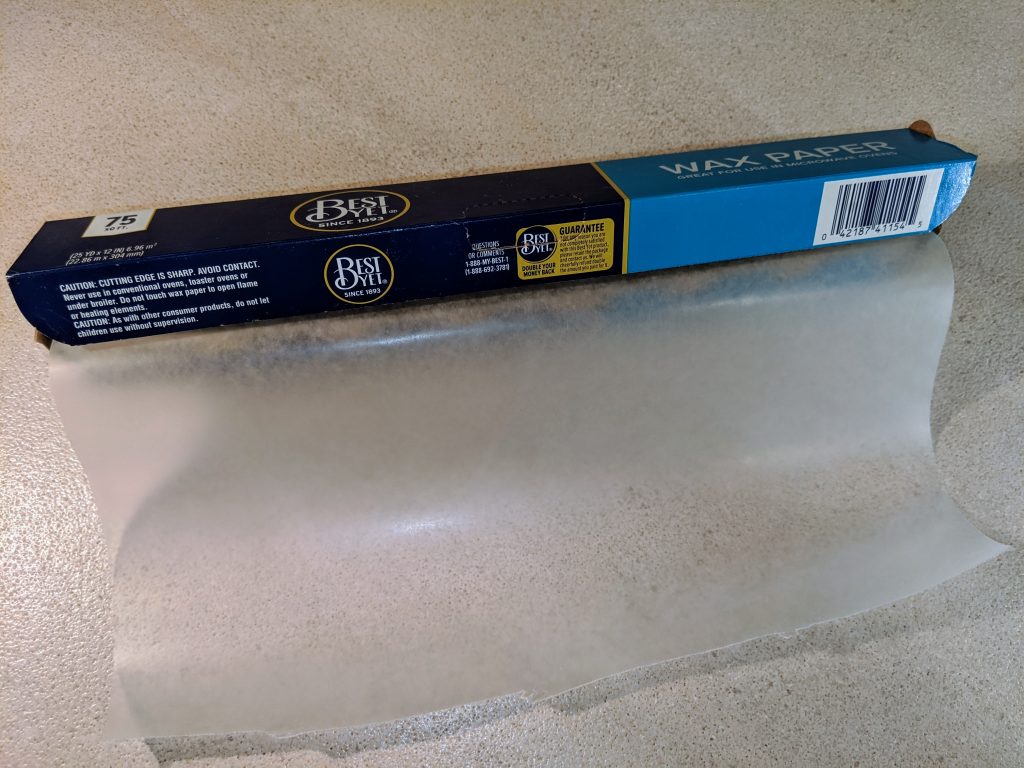
Keep a roll of this in your drawer and you’ll find many uses for it. It costs less than the alternatives in most cases.
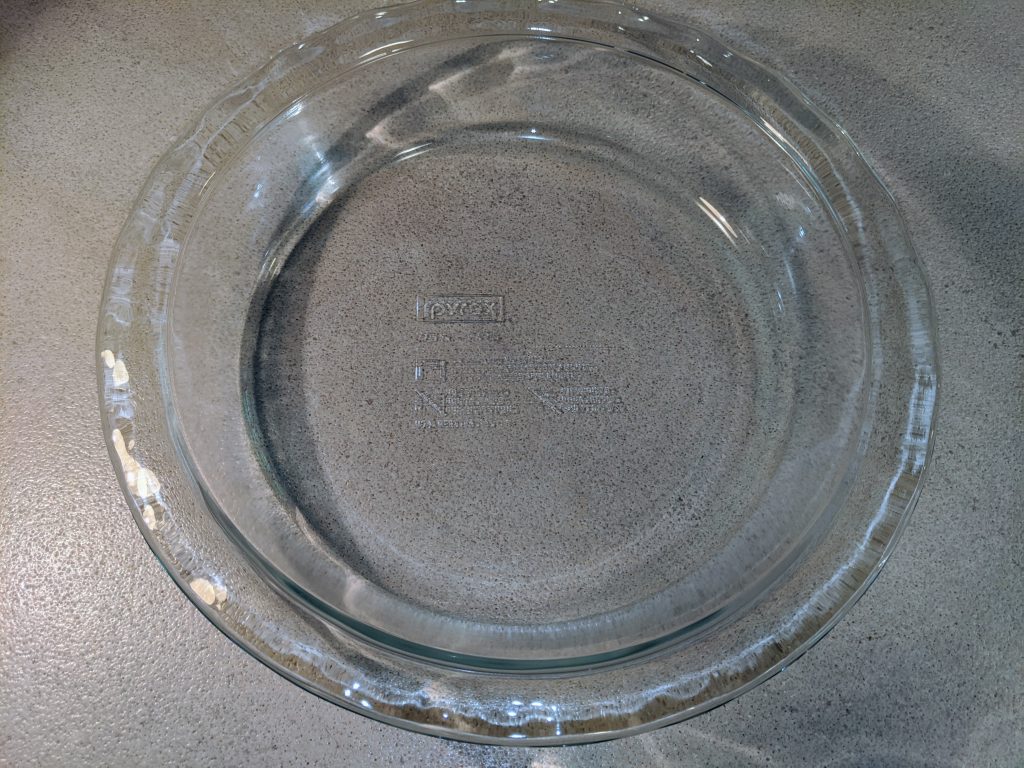
Pie pan 9″
We prefer glass pie pans to metal, mainly because they look cooler. They’re easier to clean, too.
If you’re going to be making pies, you should consider these expendable. Eventually, they’ll probably be returned…
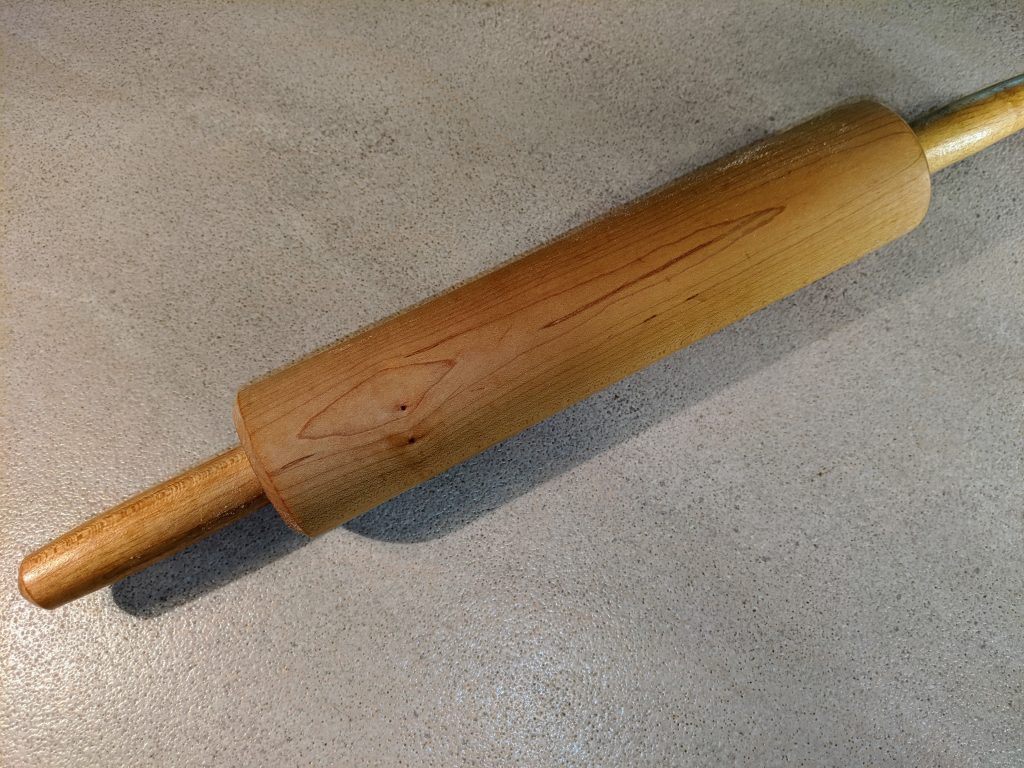
We prefer the traditional type of handled rolling pin with ball bearings for one reason: Your arms and hands won’t wear out as fast. Other people find greater accuracy with straight dowels or the tapered French style.
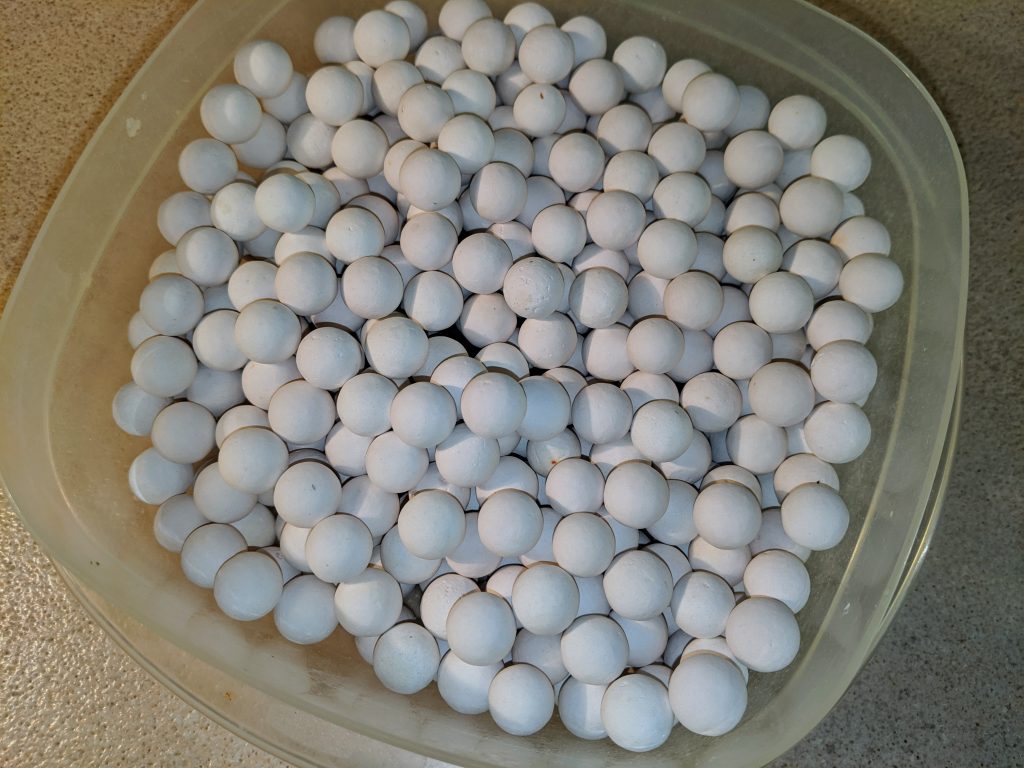
We actually use two packages of ceramic pie weights. Without these, your bottom crust will bubble up during blind baking and there won’t be any room left for the filling!
If you don’t have pie weights, empty a bag of red kidney beans into the foil. You can use these more than once if you keep them in a dry place.
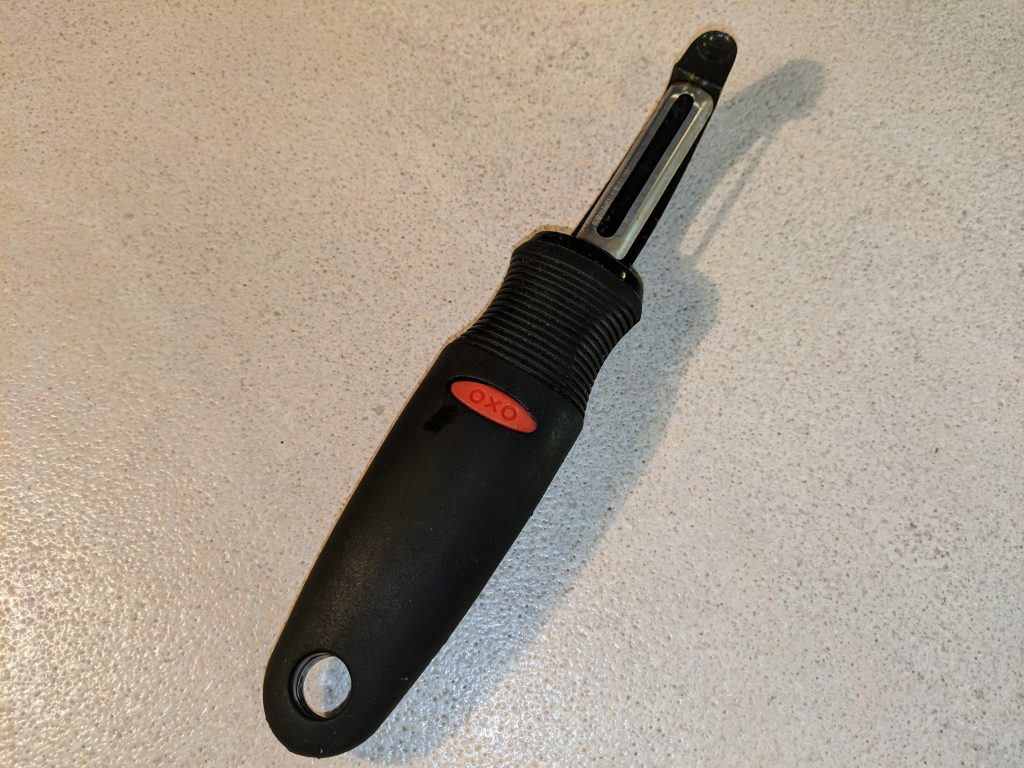
A simple and inexpensive tool that makes quick work of apple peels, plus it’s a lot safer for your fingers than a knife.
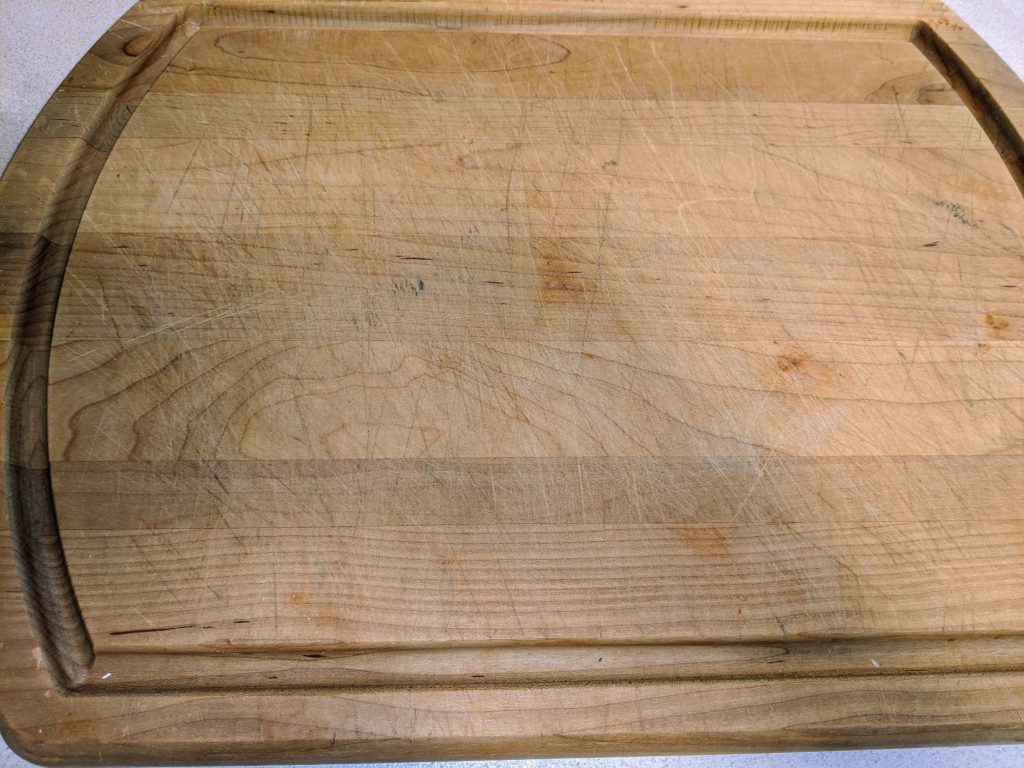
This venerable old cutting board has seen quite a few cooking projects. You need a nice big one, and the drip groove is a nice feature.
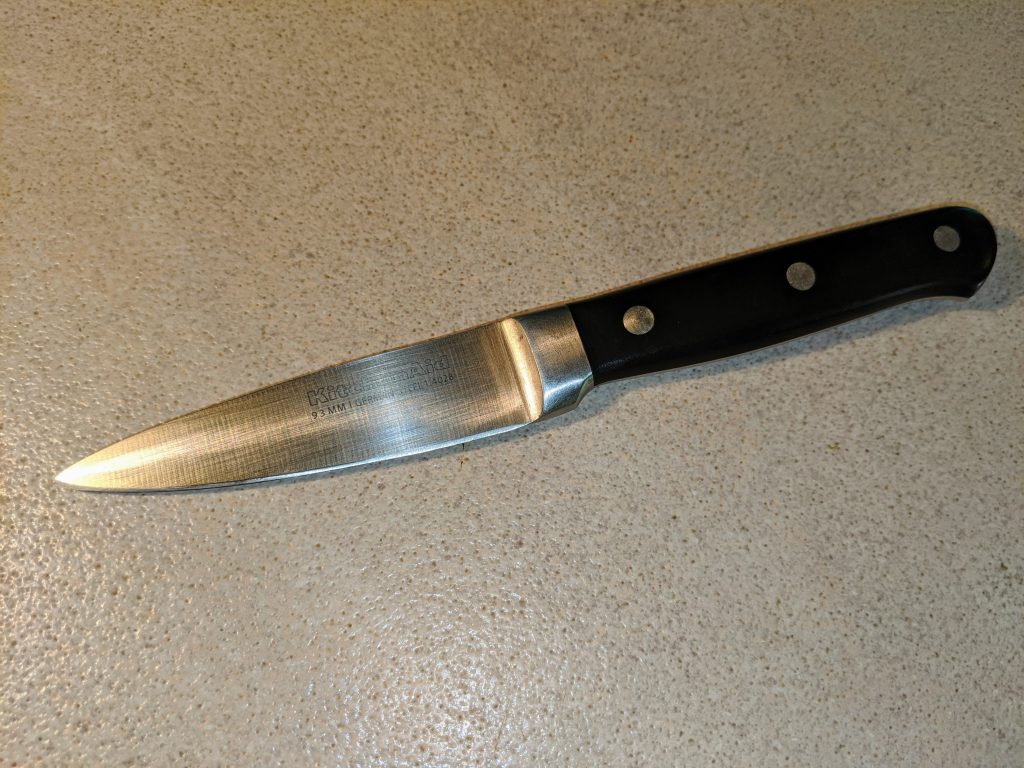
Another simple, necessary, and inexpensive tool that’s a key buy for your kitchen. You can maneuver a good paring knife close to your fingers without cutting yourself.
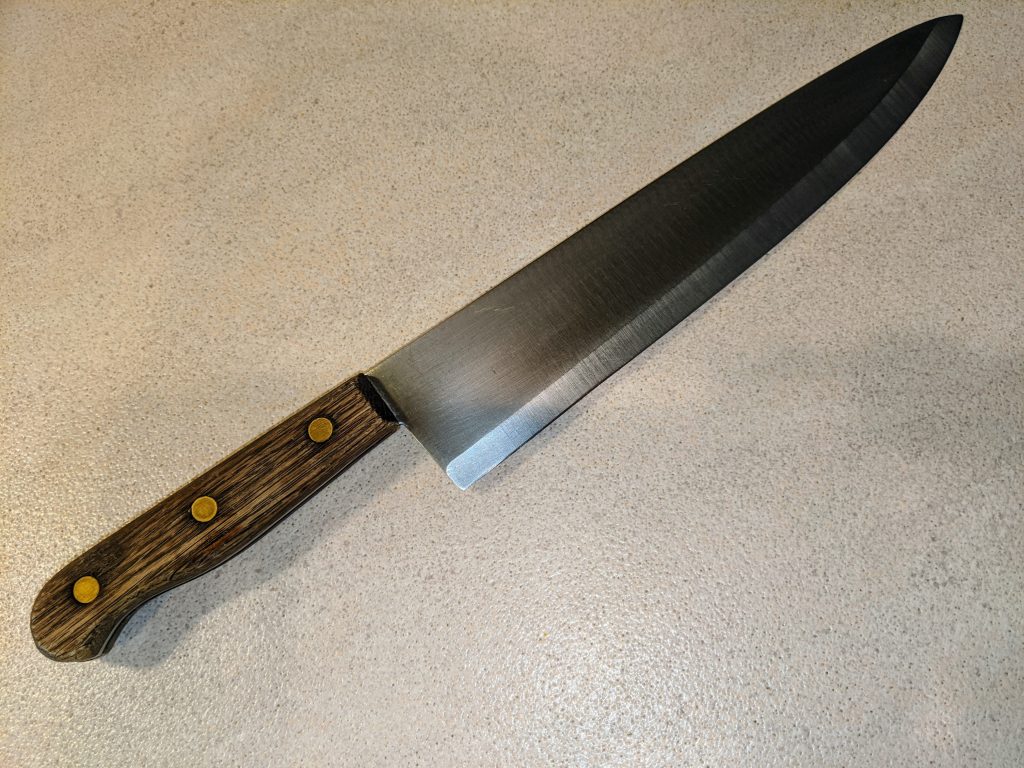
This 10″ chef’s knife has been around for about 30 years, and it’s still going strong! It’s one of the most valuable tools in your kitchen, so get a good one.
For cutting the apples, you could have used a utility knife, but we used this one because the heft goes through apples easily.
Keep your knives sharp!
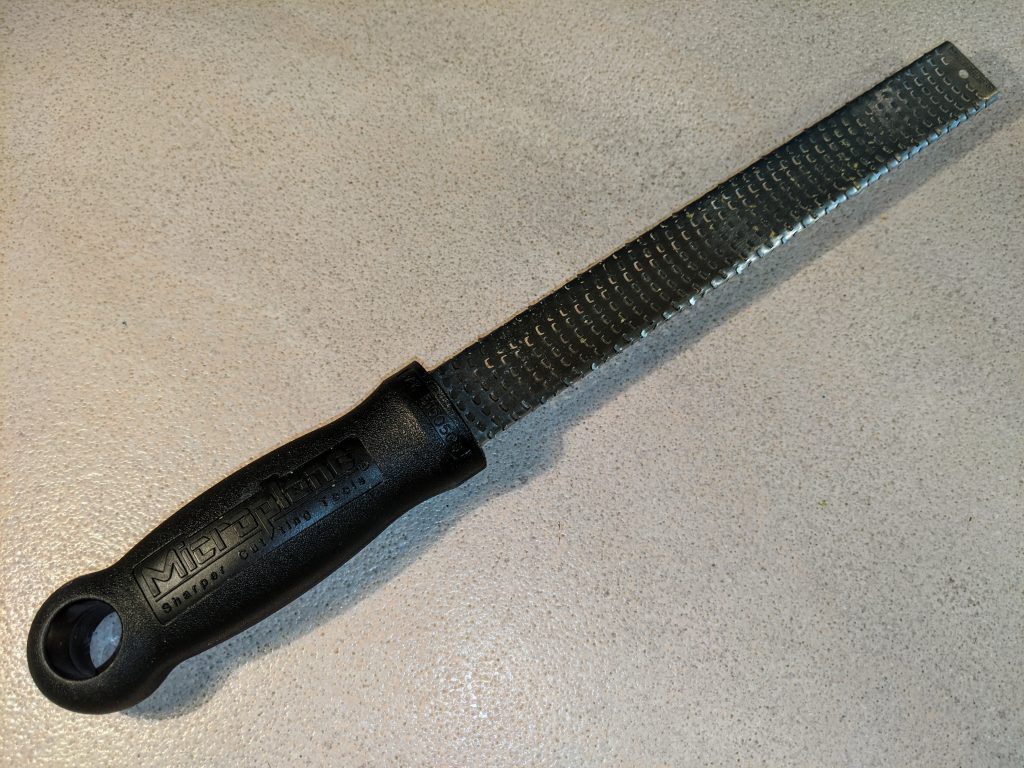
This is the easiest way to make a fine zest, like you do with the lemon peel here.
If you don’t have one of these, you can use the fine side of a box grater.
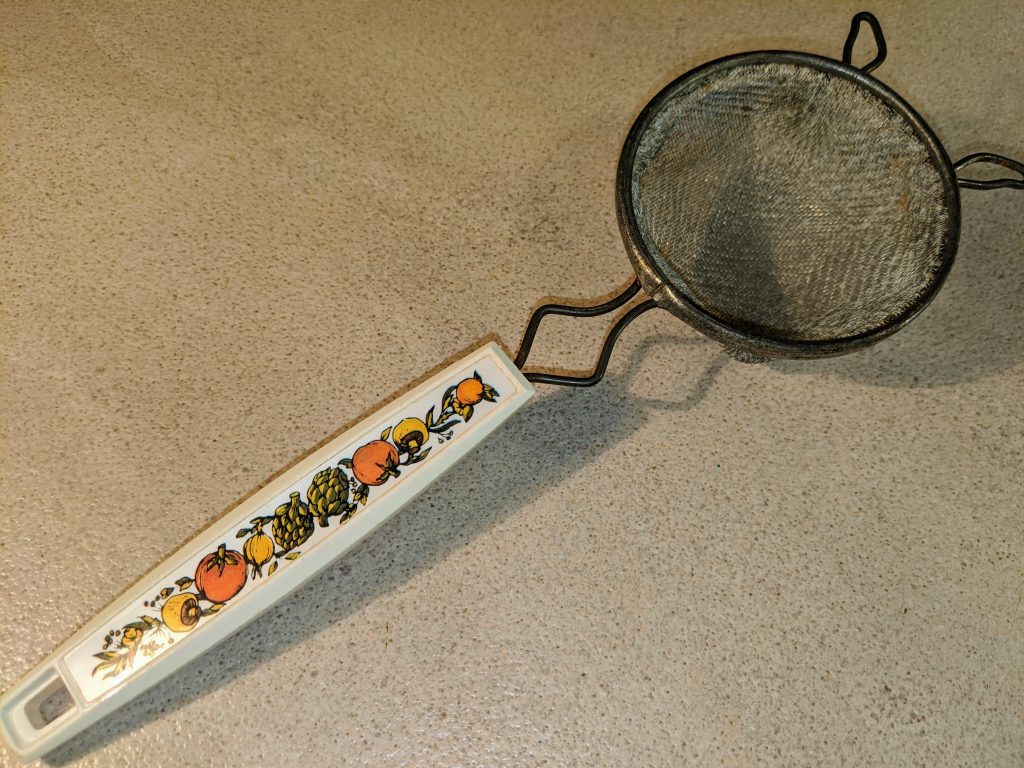
There are a lot of ways to juice a lemon. We prefer to catch the seeds and pulp with a strainer. This tea strainer is cheap and useful to have in your tool drawer.
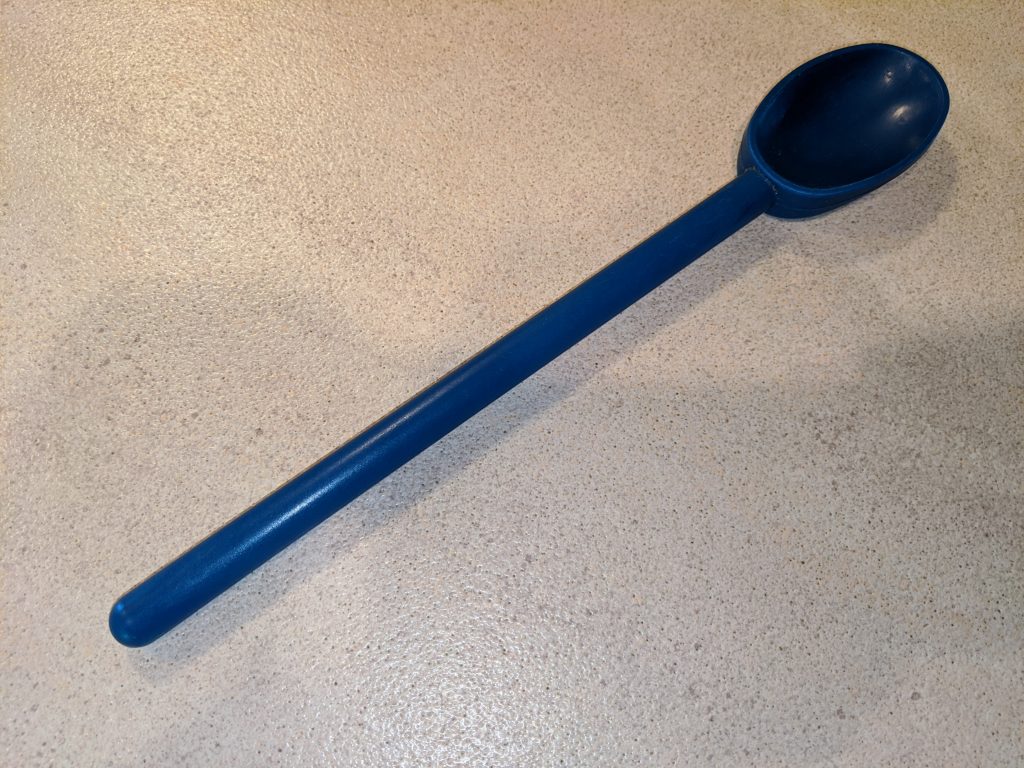
You need some heavy duty spoons around for jobs like mixing. Plastic spoons are our favorites, but you can use a metal or wooden spoon.
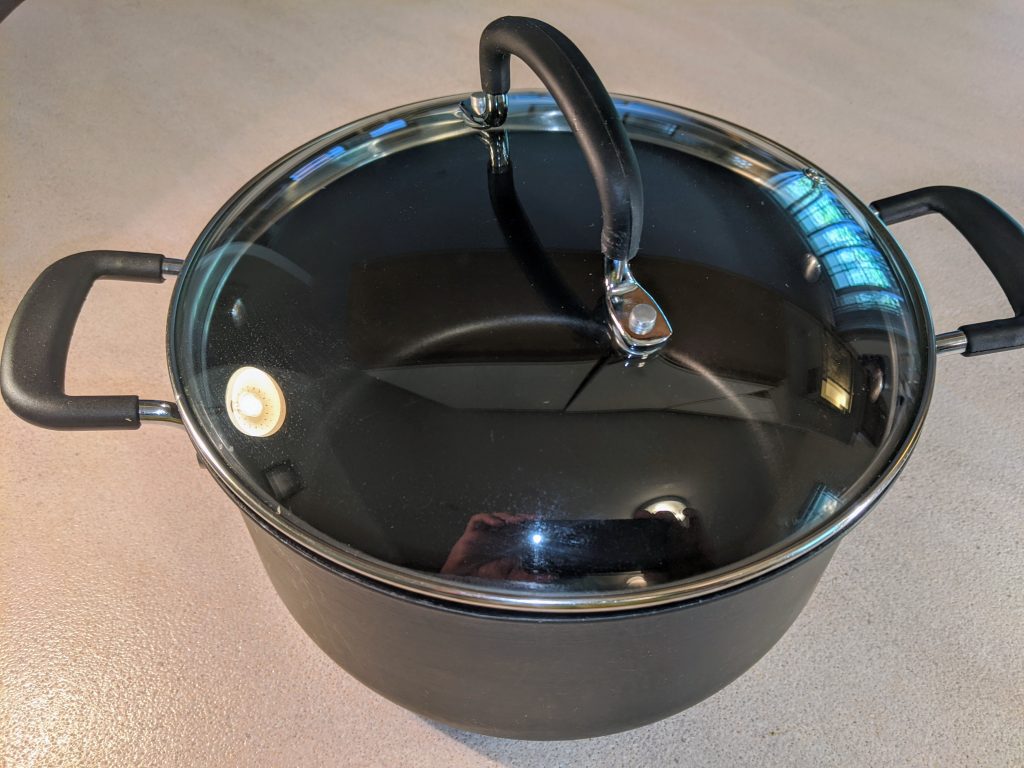
This is a five-quart non-stick Dutch oven with a lid. It’s part of a matched set of pans. There are lots of choices of styles and technologies, depending on how much you want to spend.
You could also use a large covered skillet for this recipe.
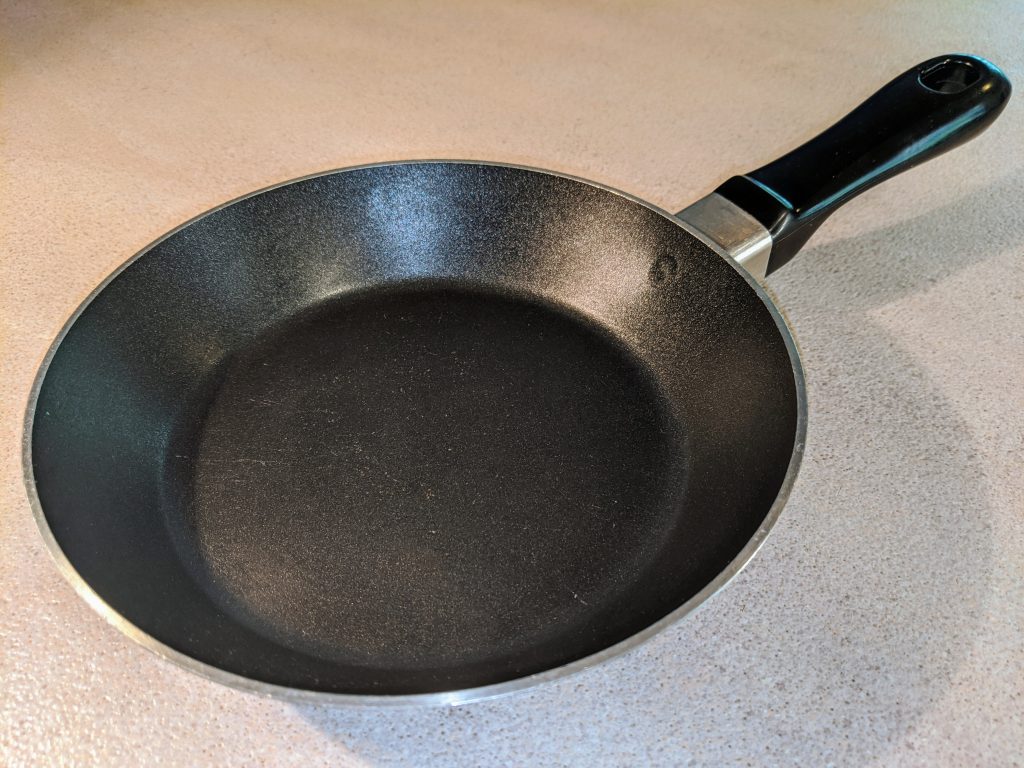
This is the smallest skillet in our cupboard, just big enough to toast the nuts. You could use a bigger one…
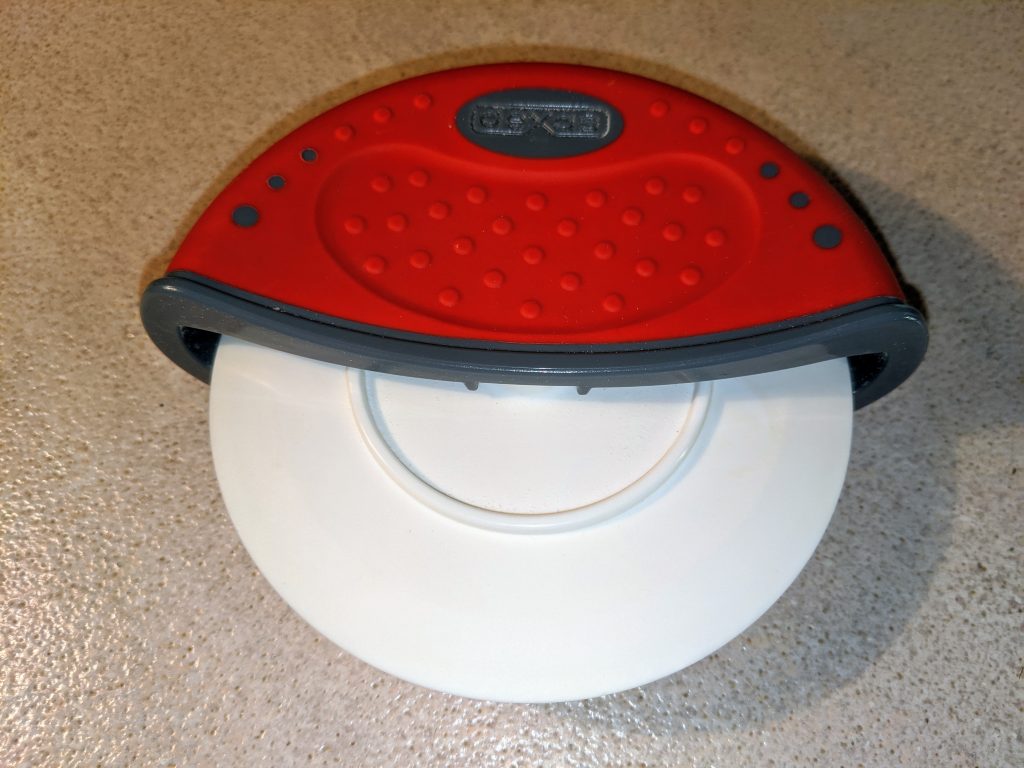
This is part of a set of little plastic wheels. You could also put fluted edges on your dough pieces.
If you don’t have one of these, use a pizza cutter, or as the last resort, the dull side of a table knife.
